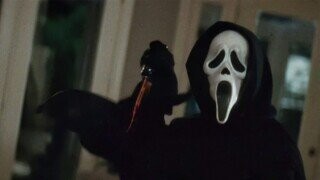Wait, 'Scream' Was Based on a Real Story?

A lot of movies are based on factual events, but Scream was based on movies. As the property credited with (or blamed for, depending on your taste) pioneering the postmodernist meta-humor that characterized comedy, horror, and comedy-horror for decades to come, it was more of a commentary on itself rather than any real attempt to tell a scary story, so it didn't need any real-life inspiration ...
… but it apparently did take it. There's a real guy who became the subject of a TV special that creator Kevin Williamson was watching when he decided to write the dead horse we're still beating.
Danny Rolling, A.K.A. the Gainesville Ripper, may not have worn a silly mask or taunted his victims over the phone with demands for movie trivia, but like the original Ghostface killer, Billy Loomis, he had daddy issues. He spent most of his adult life as a petty criminal until 1990 when an argument with his abusive father escalated to attempted murder, and not in some technical "pushed him down the stairs" sense. He took an eye and an ear from the guy, which is arguably a step up from the slut-shaming Loomis, who targeted the woman he believed to be responsible for his parents' divorce, but that's about where the credit ends.
Don't Miss
It seems that Rolling inspired Williamson far beyond that first installment because when he embarked on his killing spree a few months later, he staked out local college campuses, like the killers of Scream 2, rather than high schools. Rolling also had a penchant for posing his lifeless victims in such a way to maximize the shock value of their discovery, inspiring Williamson to hang Drew Barrymore from a tree, Henry Winkler from a football field goal post, and countless other actors of varying degrees of belovedness from increasingly wacky structures. He also had a penchant for sexual assault, though, which was a bridge too far for horror comedies in the '90s.
Like Woodsboro, the town of Gainesville shut down in terror during the final week of August 1990 -- when Rolling murdered four young women and one man. Still, his biggest contribution to the franchise was probably his motive. Like Loomis, he initially insisted he didn't have one (because it's scarier that way), but like just about every other Ghostface after that, he later admitted that he wanted to be a star.
Ironically, he failed. After all, you didn't know about him until just now.
Top image: Dimension Films